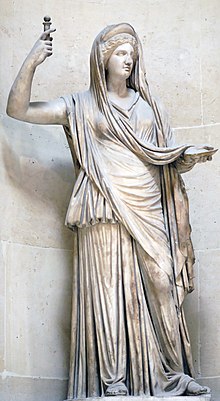A. Homer
Homer is the name ascribed by the Ancient Greeks to the semi-legendary author of the
two epic poems, The Iliad and The Odyssey, the central works of Greek
literature. Many accounts of Homer's life circulated in classical antiquity,
the most widespread being that he was a blind bard from Ionia, a region of
central coastal Anatolia in present-day Turkey.
B. Helen of Troy
Helen was the daughter of Zeus and Leda, and was a sister of Castor, Pollux, and Clytemnestra. In Greek myths, she was considered the most beautiful woman in the world. By marriage she was Queen of Laconia, a province within Homeric Greece, the wife of King Menelaus. Her abduction by Prince Paris of Troy brought about the Trojan War. Elements of her putative biography come from classical authors such as Aristophanes, Cicero, Euripides and Homer (both The Iliad and The Odyssey).
three goddess related to troy war
Hera is the goddess of women and
marriage in Greek mythology and religion. She is the
daughter of the Titans Cronus and Rhea. Hera is married
to her brother Zeus and is titled as the Queen of Heaven.
Some
of her characteristics include her jealous and vengeful nature against Zeus's
other lovers and offspring and against the mortals who cross her. She is
commonly seen with the animals she considers sacred including the cow,
lion and the peacock.
|
|
Athena is the
goddess of wisdom, craft, and war in ancient
Greek religion and mythology. Minerva is the Roman goddess identified with Athena.
Athena is known for her calm temperament, as she moves slowly to anger. She
is noted to have only fought for just reasons, and would not fight without a
purpose.
|
|
Aphrodite is the Greek goddess of love,
beauty, pleasure, and procreation. Her Roman equivalent is the goddess Venus. She is
identified with the planet Venus.
Because of her beauty, other gods feared that their rivalry over her
would interrupt the peace among them and lead to war, so Zeus married her to Hephaestus, who, because of
his ugliness and deformity, was not seen as a threat. Aphrodite had many
lovers—both gods, such as Ares, and
men, such as Anchises.
|
C. Vocabulary
stanza (n.)
|
a section of a poem consisting of a group of lines that
form a unit in a pattern that is repeated through the whole poem
|
cuneiform (n.)
|
relating to a writing system used in ancient times in
the Middle East. The letters are long and thin and wide at one end and narrow
at the other
|
monotheism
(n.) |
belief in only one God
|
polytheism (n.)
|
the belief that there is more than one god
|
atheism (n.)
|
the belief or theory that God does not exist
|
monarchy
(n.) |
a type of government in which a country is ruled by a
king or queen
|
oligarchy (n.)
|
the control of a country by a small group of people
|
theocracy (n.)
|
a government led by religious leaders
|
rhetoric (n.)
|
the art of using language in a way that is effective or
that influences people
|
impiety (n.)
|
the quality or state of being impious
|



沒有留言:
張貼留言